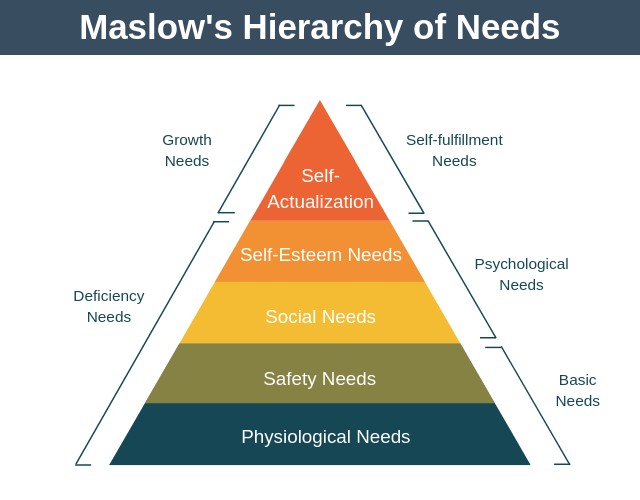In light of Covid-19, many firms are resorting to a business application of Maslow’s hierarchy of needs — to take care of their employees first. This means that setting up employees for remote production and keeping them paid and healthy are priorities beyond long term corporate strategizing.
“When the dust settles, as many as 1 in 4 small businesses will fail which employ nearly half of the US workforce. Will your marketing or brand strategy matter? Probably not.”
During a time of crisis, primary needs move front and center: food, safety, and shelter. From a small business perspective, these basic needs translate to cutting costs and meeting the minimum customer demand to stay afloat.
Maslow’s Groundbreaking Psychological Framework Is Relevant to Business Circumstances

Firms Must Prepare for Immediate and Longer-Term Marketing Approaches
One rule of thumb is that companies should develop crisis strategies for a six-month duration. Another approach is to pivot week by week or even daily in such turbulent times. As a business strategist, I tend to fall in the first camp — settling in for the long haul and developing responses to each potential scenario.
The uncertainty of the Coronavirus pandemic raises key questions that should inform your strategy no matter which route you take:
| Immediate questions | Longer term questions |
|
|
The Coronavirus will Subside, and Upper Level Business Needs will Once Again Return
When the crisis subsides, our focus will inevitably shift back to higher-level Maslowian needs, such as “esteem” and “feelings of importance.” The light at the end of the tunnel might look something like this:
- Restaurants packed with customers due to pent-up demand
- E-commerce further dominates retail and foodservice supply chains
- Cause marketing is all the rage
- Remote working expands the labor pool
But for now, it’s a safe bet for businesses to hunker down and cater to only the basic needs for survival and employee vitality.
Looking for more strategic foodservice insights around the Covid-19 crisis? Contact us to learn about a special program that helps manufacturers protect their business during this unprecedented time.
Tim Powell is a Principal with consulting firm Foodservice IP. He advises management for several small and medium size businesses.
Recent Comments